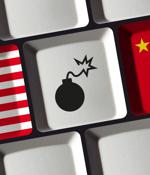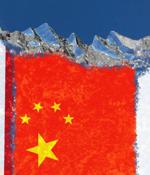Security News

The U.S. Federal Communications Commission has added Pacific Network Corp, along with its subsidiary ComNet LLC, and China Unicom Operations Limited, to the list of communications equipment and services that have been deemed a threat to national security. The agency said the companies are subject to the Chinese government's exploitation, influence, and control, and could be forced to comply with requests for intercepting and misrouting communications, without the ability to challenge such requests.

The US Federal Communications Commission has added two Chinese companies to its list of communications equipment suppliers rated a threat to national security: Pacific Network Corp, its wholly owned subsidiary ComNet LLC, and China Unicom. "Earlier this year the FCC revoked China Unicom America's and PacNet/ComNet's authorities to provide service in the United States because of the national security risks they posed to communications in the United States. Now, working with our national security partners, we are taking additional action to close the door to these companies by adding them to the FCC's Covered List," said Chairwoman Jessica Rosenworcel.
The massive amounts of digital data being bought and sold - or sometimes freely shared - poses a grave national security risk, according to a former US policymaker and diplomat. "There's a national security loophole from the proliferation of consumer data when we have so much information about Americans floating around the internet," she said.

The Canadian government has joined many of its allies and banned the use of Huawei and ZTE tech in its 5G networks, as part of a new telecommunications security framework. "The Government is committed to maximizing the social and economic benefits of 5G and access to telecommunications services writ large, but not at the expense of security," stated the Government of Canada.

The United States Department of Justice has revealed it has indicted a National Security Agency employee for sharing top secret national security information with an unnamed person who worked in the private sector. According to a DoJ announcement and the indictment, an NSA staffer named Mark Unkenholz "Held a TOP SECRET/Sensitive Compartmented Information clearance and had lawful access to classified information relating to the national defense."

FCC adds Kaspersky, Chinese companies to list of potential threats to national security. The Federal Communications Commission's Public Safety and Homeland Security Bureau has added three companies to the list of communications equipment and services that pose a threat to national security through access to user information.

The U.S. Federal Communications Commission on Friday moved to add Russian cybersecurity company Kaspersky Lab to the "Covered List" of companies that pose an "Unacceptable risk to the national security" of the country. Also added alongside Kaspersky were China Telecom Corp and China Mobile International USA. The block list includes information security products, solutions, and services supplied, directly or indirectly, by the company or any of its predecessors, successors, parents, subsidiaries, or affiliates.

The United Stations Federal Communications Commission has labelled Kaspersky, China Mobile, and China Telecom as threats to national security. Kaspersky is the first non-Chinese company to be added to the FCC's list, but the agency did not tie its decision to Russia's illegal invasion of Ukraine.

The Federal Communications Commission added Russian cybersecurity firm Kaspersky to its Covered List, saying it poses unacceptable risks to U.S. national security. Kaspersky services covered by this decision include information security products, solutions, and services supplied by Kaspersky or any linked companies, including subsidiaries or affiliates.

In this interview with Help Net Security, Rowland Corr, Director of National Security Intelligence at AdaptiveMobile Security, explains how mobile networks can be leveraged as part of a cyber warfare strategy, why is this a growing national concern, and how to implement defences against such sophisticated attacks. Where nations face the threat of overt military attack, mobile telecom networks can potentially be used by an attacker to further amplify advantage in offensive military operations as a force multiplier by enhancing real-time targeting capabilities.